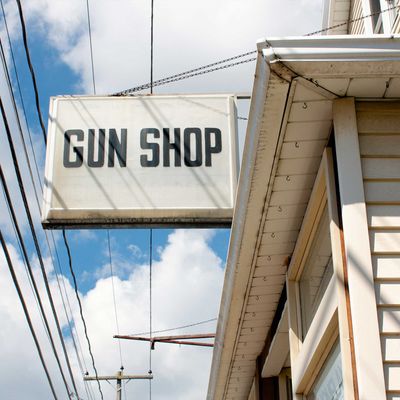
Suicide consistently gets short shrift in the conversation about gun control. Every year, a huge chunk of the total gun deaths in the U.S. are suicides — 21,334 in 2014 — and yet when guns come up, homicides and mass shootings in particular tend to dominate the discourse.
That’s partly because suicide is a difficult thing to talk about, and that’s why it’s heartening to see a short new article in JAMA Internal Medicine about a burgeoning partnership between gun-shop owners and mental-health advocates. “In a small Western town in the fall of 2015, a gun shop owner stood up at a suicide prevention conference and said the he had been approached as part of the suicide problem in the past, but this was the first time he was approached as part of the solution,” the article begins. “He joined a fledgling movement gaining momentum around the nation that brings gun shop owners, firearm instructors, and gun rights stakeholders together with health professionals to prevent suicide.”
The article, coauthored by Catherine Barber, Elaine Frank, and Ralph Demicco, a gun-shop owner who has taken a leading role in speaking out about guns and suicide and who now has multiple peer-reviewed publications under his belt (his two co-authors are public-health researchers), goes on to lay out the basics of that movement, which has taken root in more than 20 states. It’s based on a simple premise: “Given the temporary nature of many suicidal crises, saving a life in the short term often saves the life of that person in the long term, as 90% of people who survive a suicide attempt—even nearly lethal attempts—do not go on to take their lives thereafter.” This is the same logic that applies to anti-homicide interventions designed by the Chicago Crime Lab and other such organizations: If you can temporarily disrupt someone’s access to guns at a critical moment, it can make a huge impact.
Doing so, the authors note, involves collaboration between a bunch of different people that a given gun owner is likely to interact with at some point. It can mean gun-shop owners putting up posters, regional NRA branches helping inform gun owners about the risks of suicide, and, in general, getting gun owners to talk more about these issues.
Physicians are a key link in this chains, and as the authors point out, the way they talk about guns and suicide to their patients matters a great deal. Since many gun owners are fearful about the possibility of having their guns taken away, they might react negatively if, in the midst of a mental-health crisis, their doctors ask them bluntly or accusingly, “Do you own guns?” If, on the other hand, the doctor more neutrally explains that some people find that it’s smarter and safer to restrict their access to guns when they are in crisis, and that there are straightforward ways to do so, the gun owner might be more receptive.
The fact that these collaborations are effectively apolitical is part of what makes them so potentially powerful. From the point of view of someone in favor of gun control, this is a smart way to recognize that there are way too many guns floating around, that this is not realistically going to change anytime soon, and we need harm-reduction approaches that can reduce suicide in the meantime. For Second Amendment advocates, this is a way to promote responsible gun ownership, to show that gun owners themselves are aware of the link between guns and suicide and are willing to work with others to help keep people safe. Everybody gets to participate in an unalloyed good — reducing suicide — while embracing their values.




